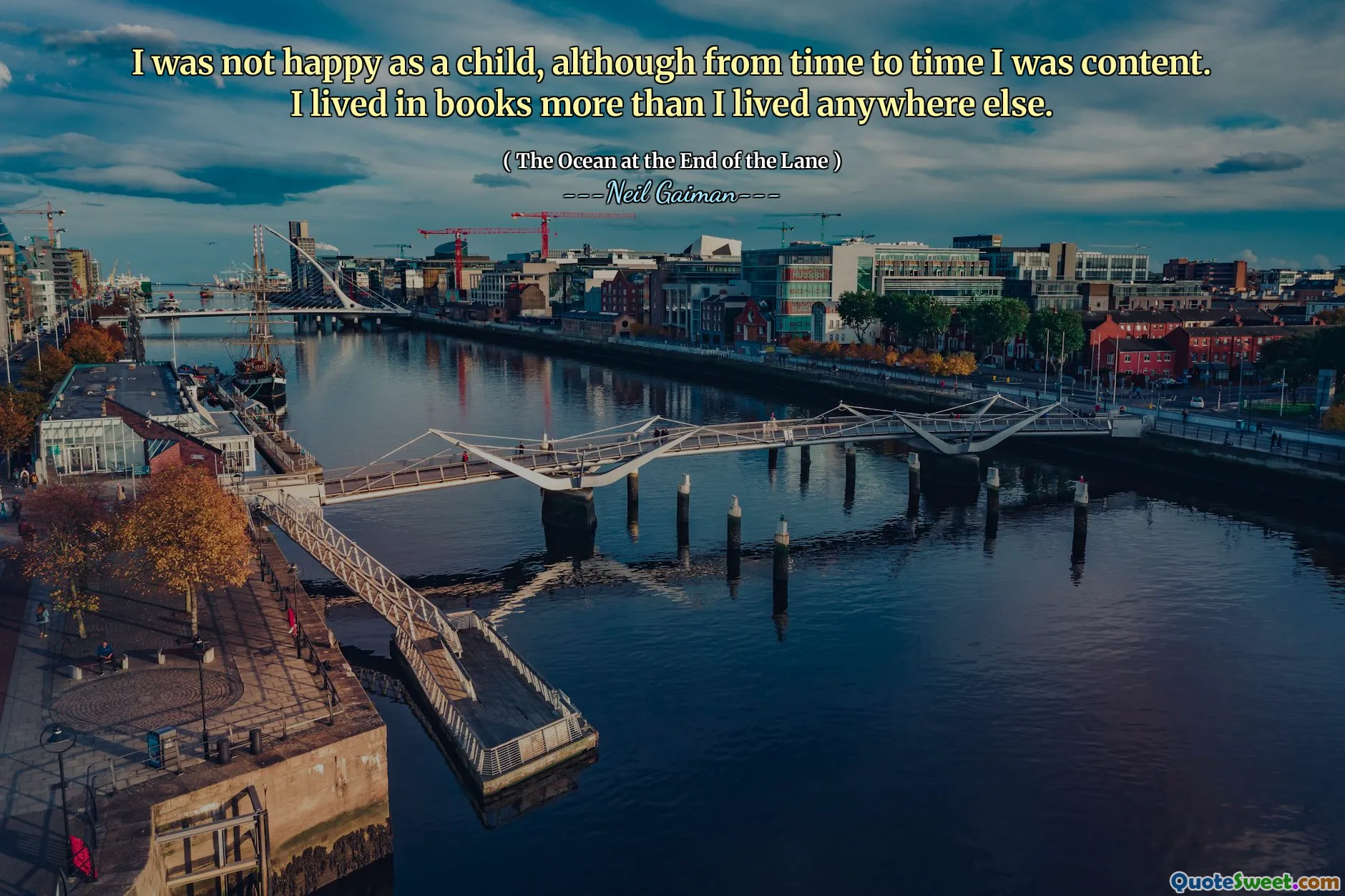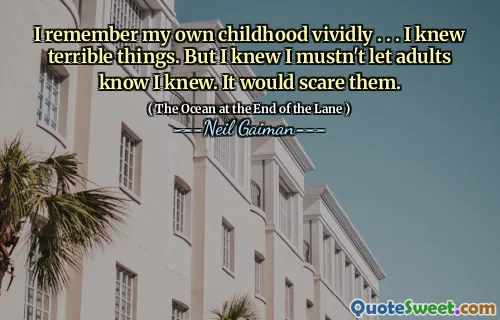
I was not happy as a child, although from time to time I was content. I lived in books more than I lived anywhere else.
This quote poignantly captures a common yet often overlooked aspect of childhood: the complex interplay between happiness and contentment. It reveals how someone might not have experienced consistent happiness during their formative years, yet still found moments of contentment—small, quiet peaks of peace amid the overall emotional landscape. The mention of living in books more than anywhere else underscores the vital role literature plays as an escapism, a refuge, or a source of solace. For many, books provide an escape from the difficulties of reality, offering adventures, comfort, or understanding that might be missing from their real-world experiences. This reflects a universal truth about human nature: we often seek comfort in stories when life feels burdensome. The statement also hints at a deeper longing for connection, understanding, and imagination, which can sometimes compensate for a less-than-ideal childhood environment. Literature has the power to transport us beyond our immediate circumstances, offer new perspectives, and foster empathy. For children who face hardships, books become not just entertainment but a vital lifeline—a world of possibilities and emotional respite. As adults reflect on their childhood, such memories underscore how vital creative outlets and understanding environments are in shaping emotional health. This quote prompts us to consider the importance of nurturing empathy and providing safe spaces where young minds can find solace and inspiration through stories.







